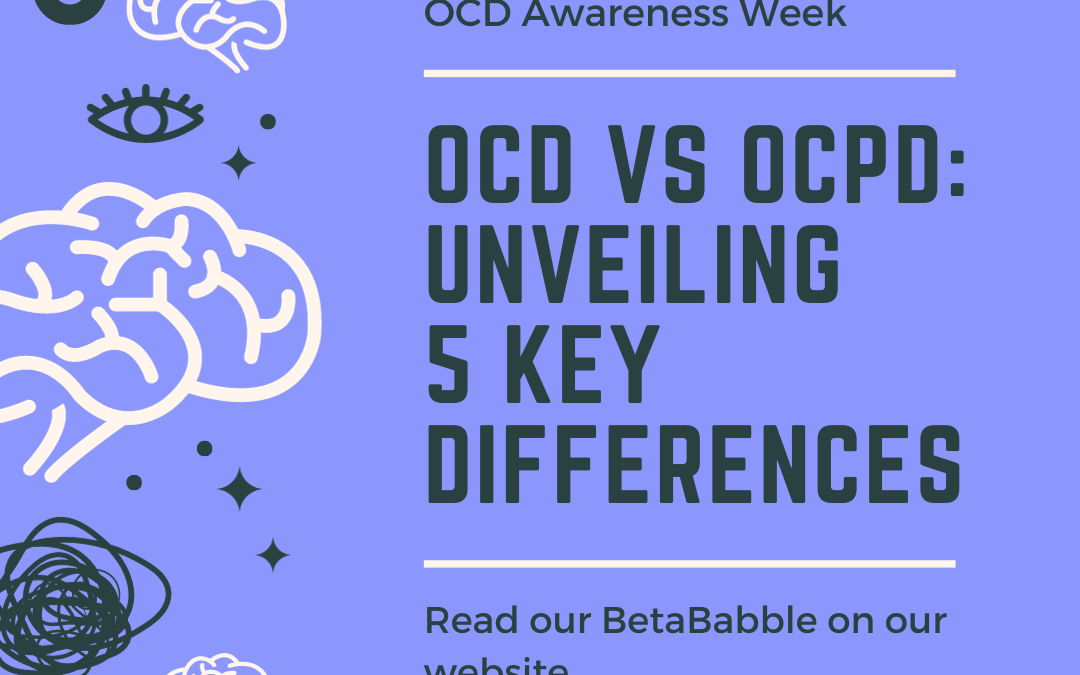Obsessive-Compulsive Disorder (OCD) and Obsessive-Compulsive Personality Disorder (OCPD) may sound like two sides of the same coin, but beneath the surface, they reveal distinct characteristics that set them apart. Let’s dive into the nuances:
1. Nature of Obsessions and Compulsions:
OCD: Imagine a mind caught in a relentless loop of unwanted thoughts (obsessions) and the need to perform rituals or mental acts (compulsions) to ease the resulting anxiety. It’s a struggle for control against intrusive forces.
OCPD: Contrastingly, OCPD isn’t marked by distressing obsessions or compulsions. Instead, it revolves around an unyielding pursuit of perfectionism, orderliness, and an insatiable desire for control.
2. Adaptability and Flexibility:
OCD: Individuals wrestling with OCD might recognize the irrationality of their thoughts but find themselves trapped in a cycle they can’t break. The distress is palpable, making adaptability a challenge.
OCPD: Those with OCPD, on the other hand, perceive their need for order and control as entirely justified. Adapting to change can be an uphill battle when tethered to rigid expectations.
3. Impact on Daily Functioning:
OCD: The impact of OCD on daily life is profound. It can disrupt routines, relationships, and work, demanding a considerable amount of time and mental energy.
OCPD: While OCPD can strain relationships and professional life due to exacting standards, it may not wield the same level of disruption seen in OCD.
4. Insight into the Condition:
OCD: Individuals with OCD often grapple with the dissonance between recognizing the irrationality of their obsessions and feeling compelled to act on them.
OCPD: Contrastingly, those with OCPD tend to believe that their way of thinking and behaving is the correct path, with others needing to conform to their standards.
5. Treatment Approach:
OCD: Cognitive-behavioural therapy (CBT), especially exposure and response prevention, has proven effective in tackling OCD’s grip on the mind.
OCPD: Psychotherapy, particularly cognitive-behavioural approaches, can help individuals with OCPD address maladaptive thoughts and behaviours.
In essence, while OCD and OCPD share a common thread of a fixation on order and control, they unveil unique characteristics that necessitate distinct approaches to understanding and treatment.

